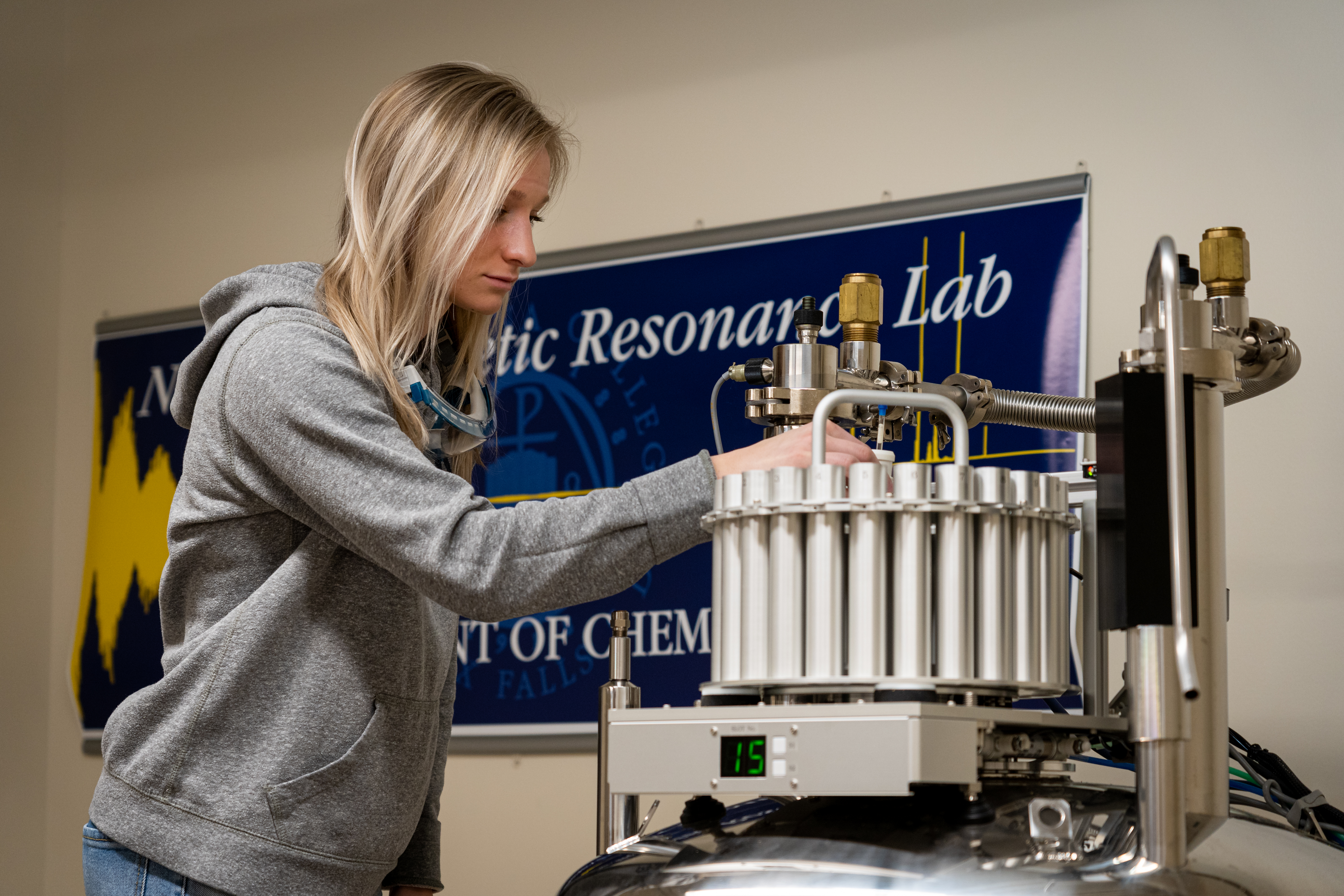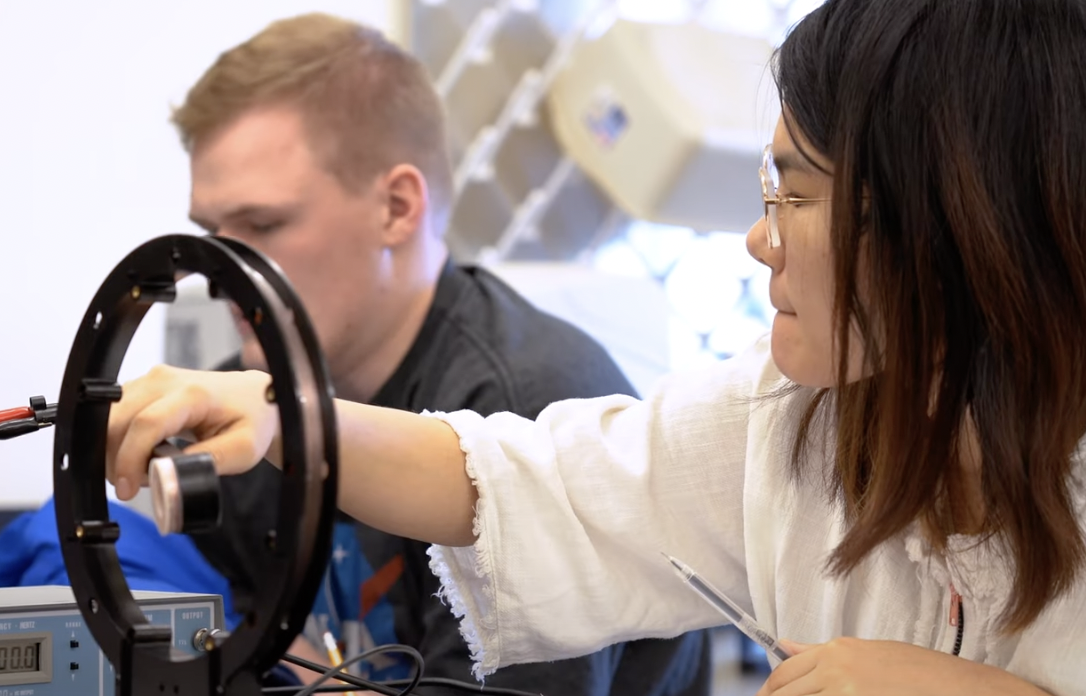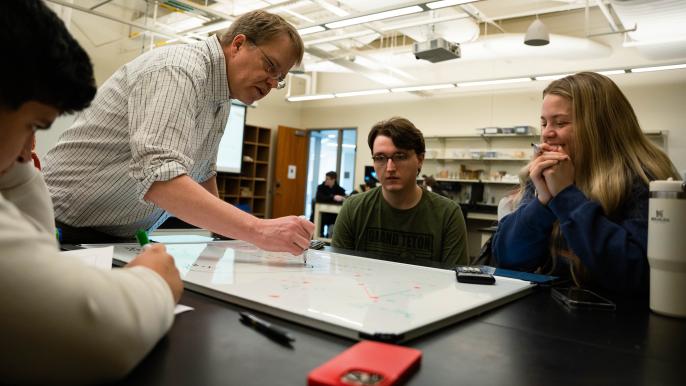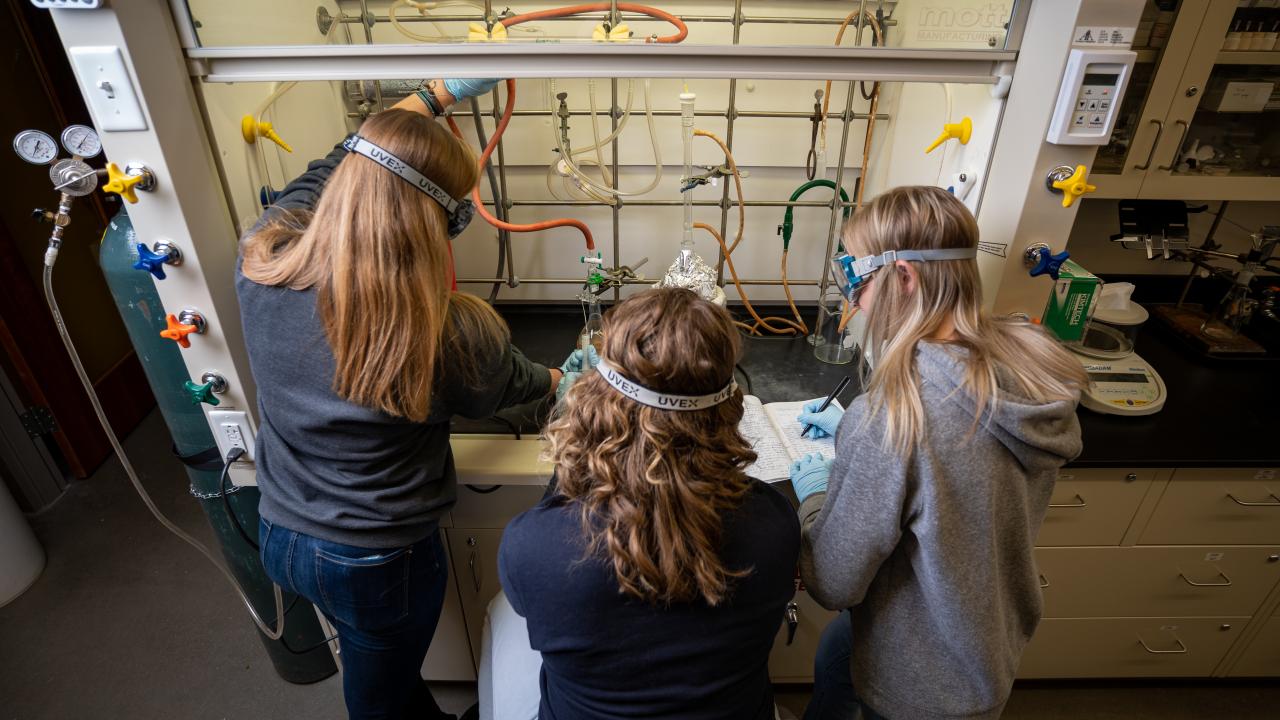Careers
Graduates have secured careers as engineers, researchers, quality control specialists, hazardous waste managers and metallurgists.
Hands-On Learning
Many students in biochemistry undertake paid research, engage in mentorship in research, internship and personalized advanced courses, present at national conferences and co-author peer-reviewed publications.
Internship opportunities include:
- Antimicrobial Materials, Inc.
- Biomedical Research Infrastructure Network (BRIN)
- SAb Biotherapeutics
- POET
- Mayo Clinic
Students conduct primary research in Augustana’s science labs containing quality equipment for students, including cutting-edge microscopy and chemical detection instrumentation.
Courses & Organizations
Students choose an emphasis in physics or chemistry with this major, depending on the number of courses taken in physics, chemistry and mathematics.
In courses and research, Augustana’s lab equipment includes:
- Infrared, UV-visible, Nuclear Magnetic Resonance (NMR), Raman, emission and atomic absorption spectroscopy instrumentation
- Liquid and gas chromatography instrumentation
- JEOL 400 MHz NMR spectrometer, which allows access to 1D and 2D NMR methods of analysis
Chemical physics students often participate in:
- Student Members of the American Chemical Society (SMACS)
- Paid laboratory assistantships and tutoring positions
- Women in STEM
- Society of Physics Students





